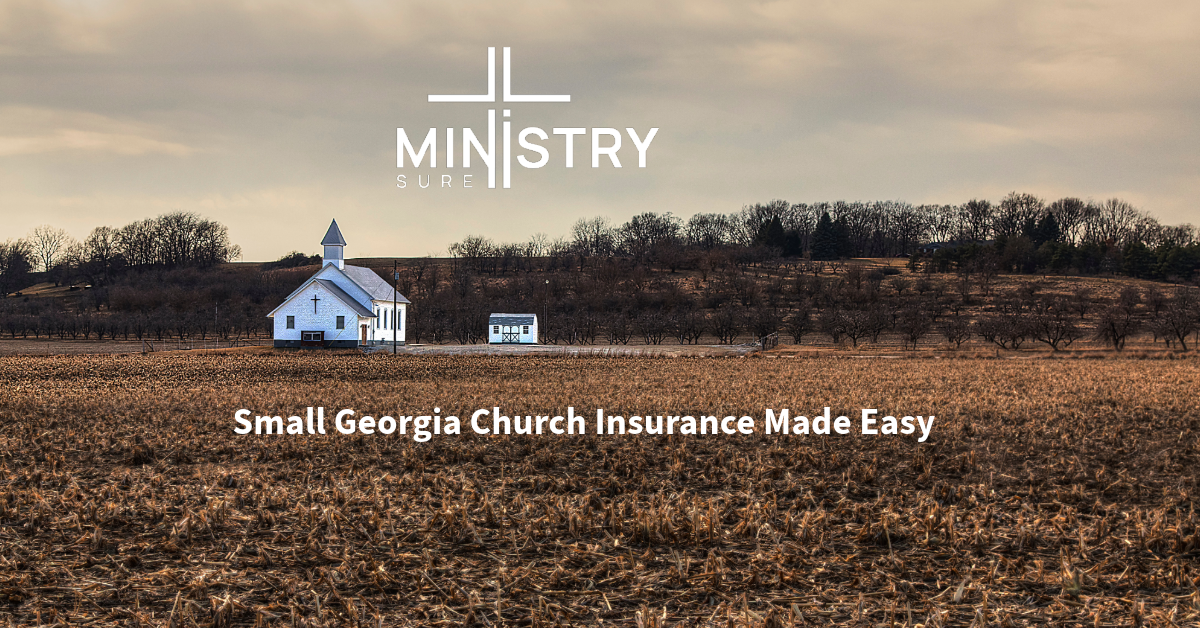
Why would your congregations need small church insurance? Imagine a place of worship suddenly facing a financial crisis due to an unforeseen accident or lawsuit. Small churches, with their tight-knit congregations and limited budgets, are not immune to these problems.
The right insurance policy is not just a safety net; it’s a tower of strength for a small church’s protection.
Let’s explore the factors that small churches must consider to protect their congregation, property, and peace of mind.
Factors to Consider
Choosing the right insurance coverage for a small church requires a careful consideration of multiple factors. Above all, church leaders should assess the unique activities and roles their organization plays in the community.
This includes looking at the size of the congregation, the types of events held, and the age and condition of the church buildings. As most churches have tight budgets, affordability of premiums must be balanced with adequate coverage.
It’s also essential to consider the long-term implications of the policy’s terms and what exclusions or limits might apply. An inventory of personal property, from musical instruments to technological equipment, should guide the personal property coverage selection.
Understanding the Potential Liability Claims
Liability insurance for small churches is a critical shield that provides financial protection against claims that could otherwise devastate the church’s finances. Small churches, similar to larger religious organizations, are not immune to facing potential litigation arising from bodily injury, property damage, or personal injury claims made by members, visitors, or even employees.
Church leaders must recognize that even with the most diligent risk management, accidents can happen during services, social gatherings, and other church-related activities. In such instances, liability insurance steps in to cover medical expenses, legal fees, and settlement costs associated with these claims.
Moreover, churches often operate on tight budgets, which leaves little room for unexpected financial burdens. Without liability insurance, a single lawsuit could drain the resources of a small church, jeopardizing its ability to operate and serve the community. In essence, this type of insurance offers not just peace of mind but also a crucial safety net that ensures church activities can go on even in the face of adversity.
Small churches encounter a wide variety of situations that could give rise to liability claims. Some common scenarios include:
- Personal injury claims due to slips, falls, or other accidents within church property.
- Bodily injury claims resulting from activities sponsored by the church, such as retreats or sports events.
- Property damage claims from incidents like fires, storms, or vandalism affecting the church buildings and property.
- Liability claims from counseling services provided by the church, which can involve allegations of professional misconduct.
- Claims related to the use of church-owned vehicles for transportation or other church-related errands.
Coverage for Small Churches
Insurance companies play a pivotal role in safeguarding the sanctity and stability of small churches by providing specialized insurance policies that address the unique needs of religious organizations. They recognize that churches are not mere buildings or commercial entities; they are centers of community and spiritual well-being. Hence, insurance providers strive to offer a blanket of security through comprehensive coverage that protects against unforeseen circumstances like natural disasters, theft, accidents, and legal claims.
Among the various types of insurance, property insurance is paramount, ensuring that the physical structures of churches and their contents—including everything from pews to musical instruments and personal property—are financially protected against damage or loss. Additionally, liability insurance is crucial for small churches; it acts as a bulwark against claims that might arise from bodily injury or property damage sustained on the church premises.
Insurance companies also play an educational role in helping church leaders understand the potential risks involved in their operations and the importance of having adequate coverage. Serving as advisors, these companies guide church staff through the process of evaluating and selecting appropriate policies.
Furthermore, by providing church insurance, insurance companies support small churches in their mission to serve their communities without the constant worry of financial ruin due to potential risks.
Additional Coverage to Consider
When contemplating insurance needs, small churches often have to look beyond the basic coverage of property and liability insurance to ensure they are fully safeguarded. Additional coverage may be necessary to address the specific risks inherent to their activities and assets. This may include:
- Professional Liability Insurance: Also known as errors and omissions insurance, this coverage can protect the church in the event of a lawsuit alleging negligence in the performance of professional services.
- Directors and Officers (D&O) Insurance: Church leaders, such as board members or officers, could be held personally responsible for the decisions they make on behalf of the church. D&O insurance helps to protect their personal assets.
- Cyber Liability Insurance: With the increasing reliance on technology, churches are not immune to cyber attacks or data breaches. Cyber liability coverage can protect against losses from such incidents.
- Employment Practices Liability: This coverage protects against claims made by employees, such as discrimination, wrongful termination, and harassment.
- Equipment Breakdown Insurance: This coverage can help with repair or replacement costs if essential equipment malfunctions.
- Special Events Insurance: Many churches host special events that may require additional liability coverage beyond what their standard policy offers.
- Umbrella Insurance: This provides an extra layer of liability coverage above and beyond the limits of other policies to protect against large claims.
Identifying the need for these additional coverages requires church leaders to assess the activities, roles, and functions within their organizations that may be exposed to potential risks.
MinistrySure Helps Small Churches
Finding the right insurance coverage for small churches requires careful consideration of the unique needs inherent to religious organizations. Church leaders should assess potential risks, such as bodily injury on the premises, property damage to church buildings, and liability for personal property, including musical instruments. It’s not just about property insurance; liability insurance is also essential to protect against claims that could otherwise burden the congregation financially.
When partnering with insurance companies, churches should look for policies tailored to their specific circumstances, factoring in all forms of church property and activities. Opting for a church insurance policy from an experienced insurance agency like MinistrySure, can provide that peace of mind.
Request a quote today!
Request a Coverage Review





